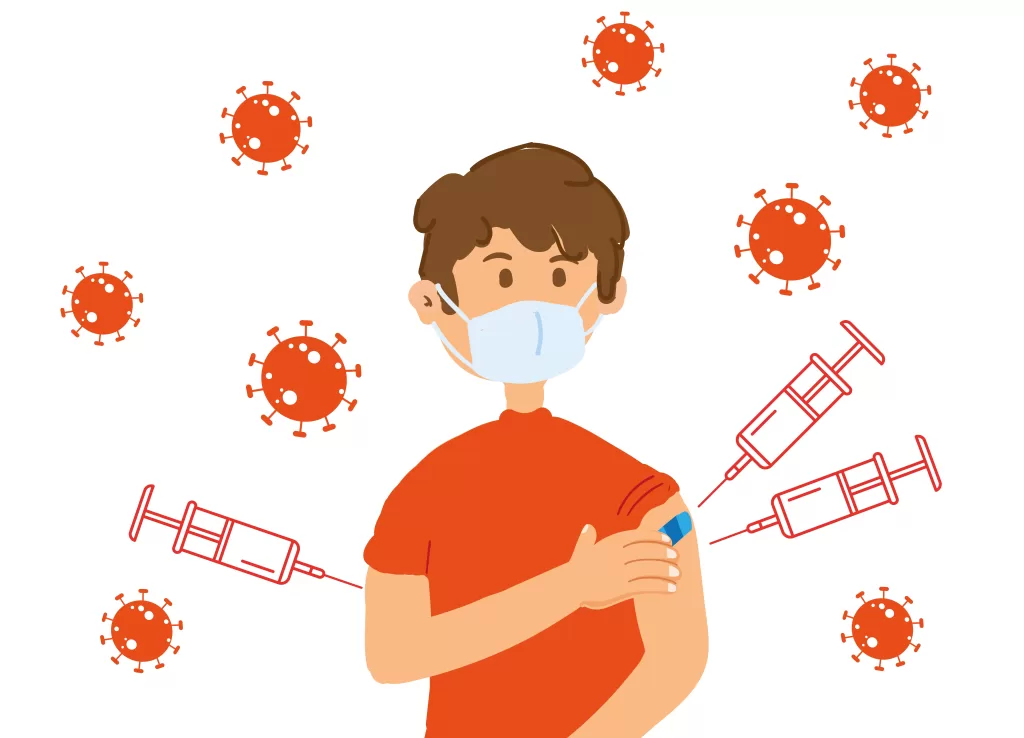Can NMN Provide Anti-Aging Potential?
08/08/2023

The quest for eternal youth has been a fascination for centuries. As we age, our bodies go through various changes that can affect our overall health and well-being. But what if there was a way to slow down or even reverse the aging process? This is where NMN, or Nicotinamide Mononucleotide, comes into play. In recent years, NMN has gained attention for its potential anti-aging properties. In this article, we will explore the fascinating realm of NMN and its connection to aging.

Understanding the Basics of Aging
Before diving into the specifics of NMN, it's important to understand the basics of aging. Aging is a complex biological process that involves a gradual deterioration of our cells, tissues, and organs over time. It is influenced by a combination of genetic, environmental, and lifestyle factors. As we age, our bodies become less efficient at repairing damaged cells and maintaining optimal function.
When it comes to aging, there are many fascinating aspects to explore. For instance, did you know that the aging process occurs at both a cellular and molecular level? It's true! One of the primary theories of aging is the telomere theory. This theory suggests that the shortening of telomeres – the protective caps on the ends of our chromosomes – plays a key role in the aging process. As telomeres shorten with each cell division, the integrity of our DNA is compromised, leading to cellular senescence and age-related diseases.
But what are some common signs and symptoms of aging that we should be aware of? Aging manifests itself in a variety of ways, both physically and mentally. For example, you may notice the appearance of wrinkles, gray hair, and a loss of muscle mass as you age. These visible changes in our appearance can be attributed to the natural aging process. Additionally, cognitive function tends to decline with age, leading to decreased memory and slower thinking. It's important to note that while these changes are common, they can vary from person to person.
Furthermore, aging is associated with an increased susceptibility to chronic diseases such as heart disease, cancer, and neurodegenerative disorders. As our bodies age, our immune system weakens, making us more vulnerable to these health conditions. Understanding the link between aging and chronic diseases can help us develop strategies to promote healthy aging and reduce the risk of age-related illnesses.
What is NMN?
NMN, short for Nicotinamide Mononucleotide, is a molecule that plays a crucial role in cellular function. It is a derivative of vitamin B3, also known as niacin, and is involved in the synthesis of nicotinamide adenine dinucleotide (NAD+), a coenzyme that is essential for energy production and DNA repair.
NMN has gained significant attention in the field of anti-aging research due to its potential to enhance cellular health and slow down the aging process. Scientists have been studying the effects of NMN on various age-related diseases and have found promising results.
The Role of NMN in Cellular Function
NMN acts as a precursor to NAD+, meaning it is converted into NAD+ in the body. NAD+ plays a vital role in various cellular processes, including metabolism, DNA repair, and gene expression. It is involved in the transfer of electrons during cellular respiration, which is the process by which cells convert nutrients into energy.
Furthermore, NAD+ is a coenzyme for sirtuins, a group of proteins that regulate various biological processes, including aging. Sirtuins are known to play a role in DNA repair, inflammation, and stress response. By increasing NAD+ levels through NMN supplementation, researchers believe that it may be possible to enhance the activity of sirtuins and promote healthier cellular function.
How NMN is Produced in the Body
Our bodies have the ability to produce NMN through a series of enzymatic reactions. It starts with the breakdown of dietary niacin into nicotinamide, which is then converted into NMN by the enzyme nicotinamide phosphoribosyltransferase (NAMPT). NMN is further converted into NAD+ by another enzyme called nicotinamide mononucleotide adenylyltransferase (NMNAT).
The production of NMN is tightly regulated in the body, and its levels can be influenced by various factors such as age, diet, and overall health. Studies have shown that NMN levels tend to decline with age, which may contribute to the decline in NAD+ levels and the associated decline in cellular function.
Interestingly, researchers have also discovered that NMN can be absorbed from the diet. Foods such as broccoli, cabbage, avocados, and edamame contain small amounts of NMN. However, it is important to note that the levels of NMN in these foods are relatively low, and it may be difficult to obtain significant amounts through diet alone.
Due to the potential health benefits of NMN, there has been a growing interest in developing NMN supplements. These supplements aim to provide a concentrated dose of NMN, bypassing the need for the body to convert niacin into NMN. However, further research is needed to fully understand the safety and efficacy of NMN supplementation.
In conclusion, NMN is a molecule that holds great promise in the field of anti-aging research. Its role as a precursor to NAD+ and its involvement in cellular processes make it a fascinating subject of study. As scientists continue to unravel the mysteries of NMN, it is hoped that it may pave the way for new interventions to promote healthier aging and improve overall cellular function.
The Connection Between NMN and Aging
Research has shown that NMN (nicotinamide mononucleotide) may have significant implications for the aging process and age-related diseases. Let's explore some of the key findings in this field of study.
The Impact of NMN on Age-Related Diseases
Several studies have demonstrated the potential of NMN in combating age-related diseases. Aging is often accompanied by mitochondrial dysfunction, which can contribute to the development of various age-related conditions. Excitingly, research has shown that NMN supplementation can ameliorate age-related mitochondrial dysfunction, which is associated with conditions like Alzheimer's disease and Parkinson's disease.

In a study published in the journal "Nature," researchers found that NMN administration was able to restore mitochondrial function in aged mice. This restoration led to improved cognitive function and reduced neuroinflammation, suggesting that NMN could be a promising therapeutic strategy for age-related neurodegenerative diseases.
Beyond its impact on mitochondrial function, NMN has also been shown to improve glucose tolerance and insulin sensitivity. Age-related insulin resistance is a major risk factor for the development of type 2 diabetes. In a study published in the journal "Cell Reports," researchers found that NMN supplementation improved glucose metabolism and insulin sensitivity in aged mice. These findings suggest that NMN could potentially reduce the risk of type 2 diabetes in aging populations.
NMN and Lifespan Extension: What Does the Research Say?
Can NMN actually extend lifespan? While more research is needed to fully understand its effects on human longevity, studies conducted on animal models have shown promising results.
In a study published in the journal "Cell Metabolism," researchers investigated the effects of NMN supplementation on mice. The study found that NMN administration improved the health span and extended the lifespan of the treated mice. Compared to the control group, the NMN-treated mice exhibited reduced age-related weight gain, improved energy metabolism, and enhanced physical performance.
Another study published in the journal "Science" explored the effects of NMN supplementation on the lifespan of roundworms. The researchers found that NMN administration increased the lifespan of the roundworms by activating certain longevity genes and improving their overall health.
While these animal studies provide valuable insights, it is important to note that further research is necessary to determine the potential lifespan-extending effects of NMN in humans. However, the initial findings are promising and warrant further investigation.
Potential Anti-Aging Benefits of NMN
So, what are the potential anti-aging benefits of NMN? Let's delve into some of the ways NMN may help slow down the aging process.
As we age, our bodies undergo various changes that contribute to the aging process. These changes include decreased energy production, impaired DNA repair, and a decline in immune function. NMN, or Nicotinamide Mononucleotide, has gained attention for its potential role in combating these age-related changes and promoting healthy aging.
Improving Energy Metabolism
NMN plays a crucial role in energy production by boosting the activity of enzymes involved in cellular metabolism. By replenishing NAD+ levels, NMN may enhance mitochondrial function, leading to increased energy production and improved overall cellular health.
With improved energy metabolism, individuals may experience increased vitality and stamina, allowing them to engage in physical activities with more ease. This can have a positive impact on overall well-being, as regular exercise is known to be beneficial for both physical and mental health.
Enhancing DNA Repair
Another crucial function of NAD+ is DNA repair. As we age, our DNA accumulates damage from various sources, including environmental pollutants, UV radiation, and normal metabolic processes. This damage can lead to mutations and genomic instability, which contribute to the aging process and increase the risk of diseases such as cancer.
NMN supplementation may aid in DNA repair, helping to maintain genomic integrity and preserve cellular function. By supporting the body's ability to repair damaged DNA, NMN has the potential to slow down the aging process and reduce the risk of age-related diseases.
Boosting Immune Function

Our immune system plays a vital role in protecting us from infections and diseases. However, as we age, our immune function tends to decline, leaving us more susceptible to infections and chronic diseases.
NMN has shown potential in boosting immune system function, thus reducing the risk of age-related illnesses. By supporting immune cell function and promoting a balanced immune response, NMN may help maintain optimal immune function even as we age.
Furthermore, a strong immune system can have a positive impact on overall health and well-being, as it helps the body fight off infections and diseases more effectively.
In conclusion, NMN offers promising potential as an anti-aging supplement. By improving energy metabolism, enhancing DNA repair, and boosting immune function, NMN may help slow down the aging process and promote healthy aging. However, further research is needed to fully understand the long-term effects and optimal dosage of NMN supplementation.
How to Incorporate NMN into Your Lifestyle
Now that we have explored the potential benefits of NMN, you may be wondering how to incorporate it into your lifestyle. One popular method is through NMN supplements. Let's take a closer look at the pros and cons of NMN supplementation and explore natural sources of NMN.
NMN Supplements: Pros and Cons
NMN supplements are readily available and offer a convenient way to increase your NMN levels. However, it's important to note that more research is needed to determine the optimal dosage and long-term effects of NMN supplementation. It's always a good idea to consult with a healthcare professional before starting any new supplement.
Natural Sources of NMN
While NMN supplements may be the most direct way to increase your NMN levels, there are also natural sources of NMN that you can incorporate into your diet. Foods high in niacin, such as tuna, chicken breast, and mushrooms, can help boost your NMN levels naturally.
In conclusion, NMN holds great promise in the field of anti-aging research. While more studies are needed, the evidence so far suggests that NMN supplementation can have significant benefits for cellular function, age-related diseases, and potentially lifespan extension. Whether you choose to explore NMN supplements or incorporate natural sources of NMN into your diet, it's important to remember that aging is a natural process, and maintaining a healthy lifestyle overall is crucial for optimal aging.

 Back to Blog
Back to Blog